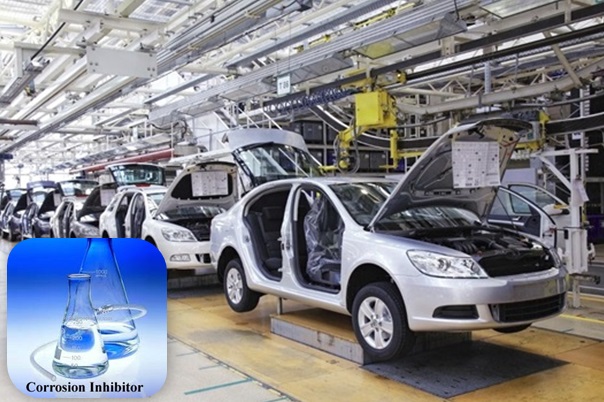Application of Corrosion Inhibitors in Motor Vehicle Industry
Corrosion is one of the greatest challenges in the functionality and reliability of equipments, pipelines, machines and other products. The process wears out materials which increases the maintenance costs, reduces productivity and increases losses. Corrosion inhibitors are widely applied in manufacturing, mining, automotive and other numerous industries to reduce the effects of corrosion by fluids.
Pipeline Corrosion Inhibitor
Pipes form the basis for transfer of most liquids. These include oil and natural gas, processed petroleum, drinking water, processing chemicals, acids, alkalis, liquid food products and liquid agro chemicals. These products are conveyed through steel pipes which are easily corroded by the moving fluids.
The principle agents of corrosion in these pipes are water which causes rusting, oil and gas which have corrosive elements, salts which cause chemical reactions, acids and alkalis that react with metals as well as carbon dioxide and oxygen. All these chemicals cause deterioration irrespective of their trivial amount. In addition, solid impurities and debris flowing at high velocity in pipes cause abrasion or scratching that increase the wear and tear.
Pipeline corrosion inhibitors are therefore a must have for oil and gas as well as manufacturing industries conveying liquid substances. Two types’ inhibitors are common; water soluble and oil soluble.
Water soluble corrosion inhibitors such as ammonium compounds are applied in pipelines with high water content. Oil soluble corrosion inhibitors such as carboxylic acids and organic amines are applied in transportation of oil, gas and other organic fuels.
The inhibitors use a variety of advanced methods to form a protective film on the steel pipe ensuring that the liquids passing through do not come into contact with the pipeline.

Application of Inhibitors in Engine Oils
Lubrication oil is found in gear box, car engine and nearly all machineries in the manufacturing sector. This oil circulates at high temperature and velocity within the engine and this greatly increases it corrosiveness. Oil soluble corrosion inhibitors are added to these oils and they form monomolecular layer on the metal surfaces preventing rusting and corrosion. These inhibitors also prevent the oil from oxidation which results in development of sludge that further increases decomposition and wear. The inhibitors also neutralize acids and absorb oxygen.
Use of Inhibitors in Hydraulic Brakes Fluids
Hydraulics systems are used in construction machines, car braking systems, car power steering and other systems. These systems have high pressure fluids that can easily corrode storage tanks and steel pipes. To prevent these, corrosion inhibitors are used to form a protective layer over the metallic surfaces.
Blending Car Fuels and Gasoline with Inhibitors to Reduce Corrosion
Vehicle fuels systems are expensive and must be maintained in good condition to reduce maintenance cost and fire accidents. Oil soluble inhibitors are therefore added to tanks in the petroleum station so that storage, pumping and dispensing equipment are not corroded. In addition, fuel additive prevent wear of the vehicle fuel equipment as they form an active surface with the pipe line and metallic surfaces preventing any corrosion.
Use of Inhibitors when Transporting Gasoline and Fuels
Transportation of processed fuels through pipelines requires the use of inhibitors to prevent rusting and wear caused by the corrosive nature of fuels.
This article has been written by Govind Patel.